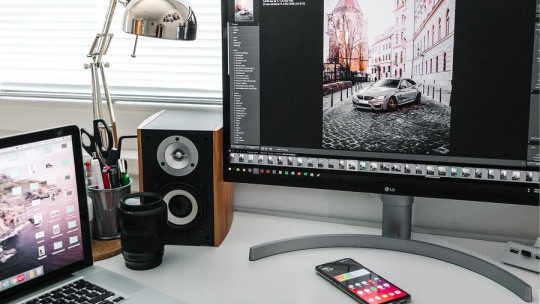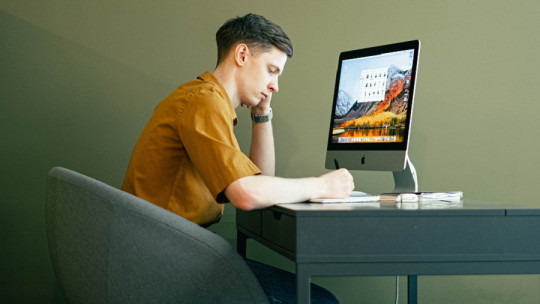
In a society in which more and more is expected of us, a greater ability to mix private life and work and a greater predisposition to constantly adapt to technological and social changes, it is not surprising that many people feel that they cannot cope. Nowadays it seems that even sitting down to eat with the family is a waste of time, that the optimal and most efficient thing is to snack on something in front of the computer while reading the news or making notes in the agenda; Something similar happens with times to sleep and rest, which become blocks of time increasingly cornered in the agenda.
The idea that throughout the day we must attend to several fronts at the same time, squeeze our physical and mental capacities to combine the completion of tasks and thus cover more in everything we do. Multitasking, the ability to do two or more things at the same time, seems to be the wild card that we use again and again to try to achieve everything we have set out to do. But… Is this a viable way to face our problems and our responsibilities?
The answer is complex, because although it is true that in certain circumstances we can learn to perform two different types of actions at the same time, In many cases, multitasking is harmful and works against us Let’s see why.
What is multitasking?
What in psychology and cognitive sciences in general is understood by multitasking is the ability to divide attention into several focuses to attend to various tasks at the same time. It is an innate aptitude that the vast majority of human beings have as a result of the mental flexibility that characterizes our species.

However, it has its limitations and It has not been designed by evolution to make us capable of doing more than two things perfectly at once ; After all, our mental abilities are based on the functioning of the brain, and it is not omnipotent; He is constrained by the amount of material resources he has available and the time he is given to work.
So, the key is to know that although we can do several things at once to a certain extent, this way of behaving is only useful in certain situations and has disadvantages that we must be aware of.
The negative aspects of multitasking
These are the main risks and negative effects of multitasking.
1. It can make it more difficult for us to fall asleep
By doing several things at the same time, what is really happening in our brain is that several networks of neurons are activated at the same time, something that keeps our nervous system working at full speed, so it remains more active than normal. Therefore, if we carry out multitasking in a sustained manner for a significant period, Our neurons will readjust their activity rhythms and remain alert even when we have stopped attending to those tasks, since the degree of nervous activity does not usually change radically in a matter of a few minutes. And this can be a problem if bedtime is close. In other words: we will go to bed with our brain more active than normal, something that gives rise to problems falling asleep.
2. It is less efficient
As a general rule, when we divide our attention between several tasks at the same time, we put less care into carrying out each one; That is why practically no one can do complex actions with each hand at the same time, such as writing and painting. The more difficult it is for us to do something, the more attention it requires, and when we already master it a lot, we are able to do it almost without thinking about it; however, We will almost always be better at what we can devote our full attention to Therefore, when we switch to multitasking, we are slower and the results tend to be worse.
3. It stresses us out
When we do two actions at a time and one or more of them are very monotonous, there usually comes a point where we have to make decisions; In this sense, it has been seen that reaching the moment of choosing between several options with divided attention generates stress in us very quickly, something that is not only unpleasant, but also harms our emotional balance and it makes us stay “stuck” without knowing what to do more easily.
4. It makes us more irritable
If doing two things at once is already intense, having other people interfere with it is even more uncomfortable. For this reason, hostile or passive-aggressive reactions are more common when we are engaged in multitasking, since dFrom our point of view, someone talking to us or asking us something is an obstacle or something that makes us lose track of what we were doing (and in which we have invested a lot of effort).
Are you looking for professional psychological assistance?
If you are interested in having psychological support from a professional, I invite you to contact me.
My name is Thomas Saint Cecilia and I am an expert psychologist in the cognitive-behavioral intervention model, with which I help adults, adolescents and companies. I can assist you in person in Madrid or online through video call sessions.








